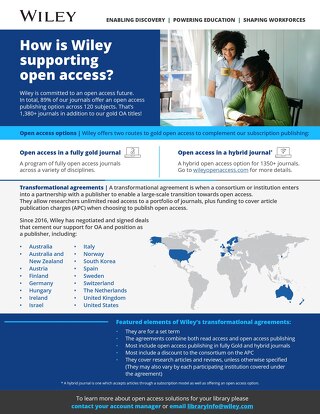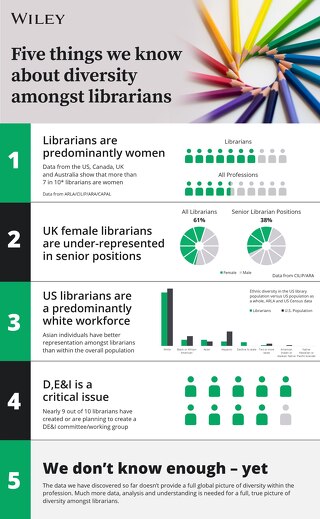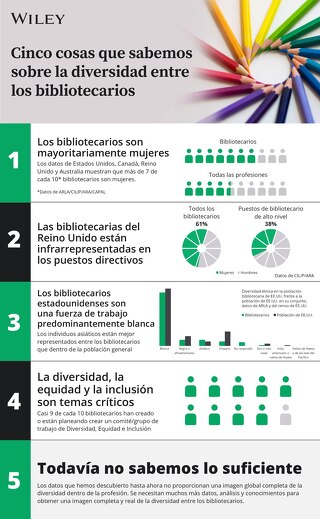5-ways-librarians-can-support-researchers-through-the-publishing-process
February 26, 2018
Finding the time and resources to support researchers through the publishing process isn’t always easy. Each author and article is unique, and requires different levels of support from you and your library.
Here are five things you can do to help your researchers find all the support available to guide them through their publishing journey – from writing the paper, to selecting a journal, peer review and promoting their published work. You can share these resources with researchers via platforms like social media or email.
1. Encourage researchers to listen to publishing webinars
Make sure your researchers know about Wiley’s free webinar channel. Here they can listen to helpful presentations from Wiley Editors, including tips about common mistakes and how to avoid them. They can engage in live Q&A’s with editors, and learn how to navigate the publishing process. All the webinars are available on-demand, so authors can access publishing advice from leading editors and industry experts at any time, helping them develop the skills they need to publish their next article.
2. Direct them to Wiley Author Services
Wiley Author Services is a great resource for researchers offering content to support them through each step of the publishing process, including a promotional toolkit for when their paper is published. Here they’ll find various training tools, videos and other visual assets. There are also links to journal submission sites and author guidelines.
3. Promote relevant and interesting articles
If you’re reading this then you’ve already found The Wiley Network - a blog site where authors can hear from editors, researchers, societies and librarians on a wide range of different issues and topics. They can read articles about the latest industry developments, the future of scholarly research, and find practical advice for negotiating all stages of the publication journey.
You can help your researchers by tweeting or sharing relevant stories and encouraging them to register for email alerts. They can personalize what they see based on interest or just browse to see the latest articles, and engage with other authors. Here are a few to start sharing with your researchers:
- 9 common reasons for rejection
- 6 Steps to Choosing the Right Journal for Your Research: Infographic
- What Makes a Good Research Article Title?
4. Follow and retweet @wileyresearcher
If you don’t already do so, then you can follow @wileyresearcher on Twitter. Keep up to date with all the latest news, resources, interesting articles, and retweet any items of interest to your researchers. E.g. tweet about webinars, helpful blogs, and relevant researcher events.
5. Advise researchers who need it, to access language and editing services
There should be no barriers to getting your research published but English language and formatting issues are one of the most common reasons for the rejection of manuscripts. Wiley Editing Services offers expert help with English Language Editing, as well as translation and manuscript formatting, to help non-English speakers ensure their manuscript is ready for submission. You can support your researchers by letting them know that help is available, and making it easy for them to find.
Share these resources where your researchers are most likely to find them – on Twitter, Facebook, or by email. By doing these five things you can guide your researchers to free, helpful online content where they can learn and develop the skills required to publish their next paper with confidence.
Image Credit: Getty Images










